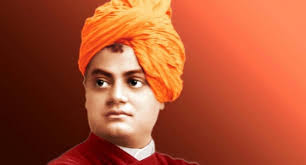Karma-Yoga : Ch-8. Part-8.

Karma-Yoga CHAPTER VIII THE IDEAL OF KARMA-YOGA Part-8. Now comes the next question : - What is this work? What is this doing good to the world? Can we do good to the world? In an absolute sense, no; in a relative sense, yes. No permanent or everlasting good can be done to the world; if it could be done, the world would not be this world. We may satisfy the hunger of a man for five minutes, but he will be hungry again. Every pleasure with which we supply a man may be seen to be momentary. No one can permanently cure this ever-recurring fever of pleasure and pain. Can any permanent happiness be given to the world? Swami Vivekananda To be continued ...










